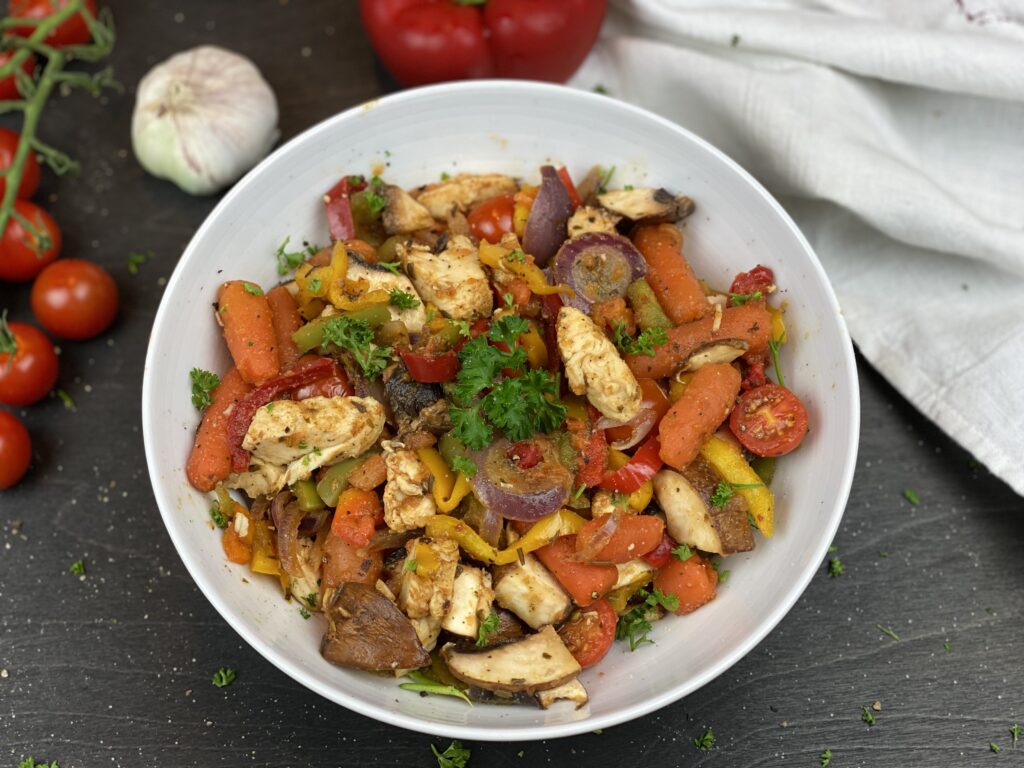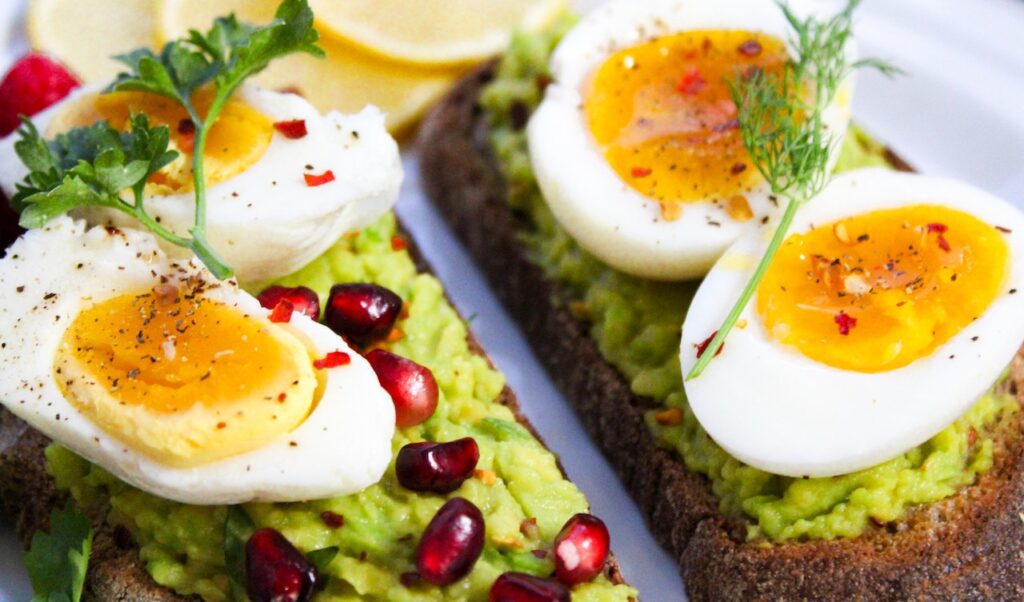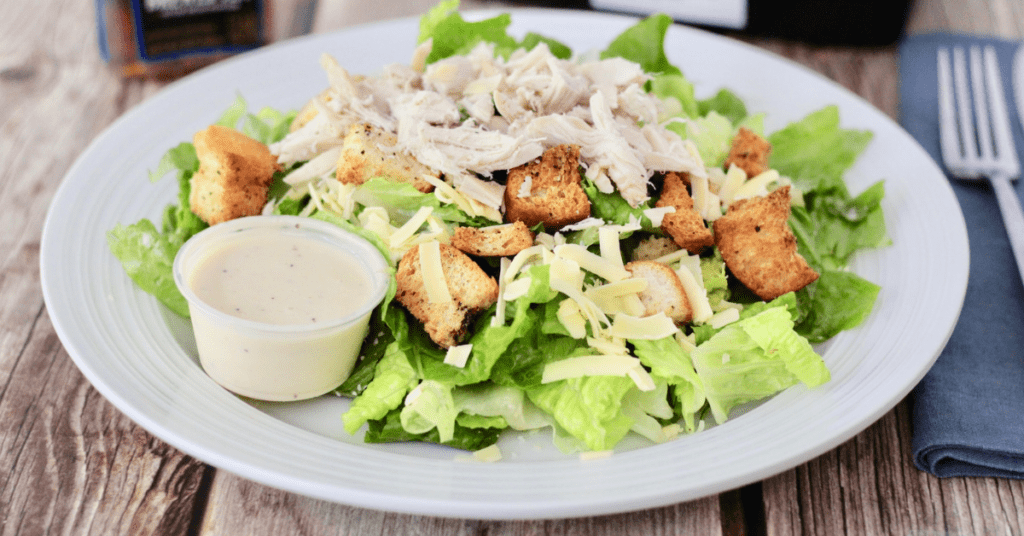Navigating the dos and don’ts of pregnancy can sometimes feel like a maze, especially when it comes to dietary restrictions. Among the myriad of questions you might have is, “Can you eat chicken salad while pregnant?” This seemingly simple dish may raise some concerns due to the potential risks associated with improperly cooked chicken or certain ingredients.
This article aims to shed light on this topic, offering clear guidelines and safety measures to help you satisfy your cravings while also ensuring your and your baby’s well-being. So, if you’re pondering the safety of enjoying chicken salad during your pregnancy, read on.
Can Pregnant Women Eat Chicken Salad?
Firstly, it’s crucial to ensure the chicken is cooked thoroughly. Proper cooking, reaching an internal temperature of 165 degrees Fahrenheit, kills off any harmful bacteria that could potentially cause foodborne illnesses. A meat thermometer can be a helpful tool to ensure the chicken is cooked to the right temperature.
Secondly, if you’re using mayonnaise in your chicken salad, it’s best to choose a variety made with pasteurized eggs. This is important as unpasteurized eggs could carry Salmonella, a bacteria that can cause food poisoning.
Thirdly, if you’re buying a pre-made chicken salad, it’s best to avoid those that have been sitting out in the deli section. These could be a breeding ground for bacteria like Listeria, which can grow even in refrigerated temperatures.
Lastly, proper storage is key. After making or buying chicken salad, store it in the refrigerator at a temperature below 40 degrees Fahrenheit, and aim to consume it within a couple of days.


So, yes, chicken salad can absolutely be on your menu during pregnancy. Just make sure it’s prepared and stored correctly to ensure you and your baby stay safe and healthy.
How to Tell if Chicken Salad is Bad?
Observing the Color
Fresh chicken salad typically presents a light, creamy color, thanks to the mayonnaise, combined with a slightly pinkish hue from the chicken. If you notice a significant color shift, this is a clear warning sign that your chicken salad may no longer be good.
Smelling the Salad
Your nose is a powerful tool when determining food freshness. Fresh chicken salad should have a mild, somewhat pleasant aroma. If it’s giving off a sour, rancid, or generally off-putting smell, this is a strong indicator that the salad has turned and should not be consumed.


Checking the Texture
Texture can reveal a lot about the freshness of your chicken salad. It should be creamy and moist. If the salad feels slimy or unduly watery, it’s a good bet that it’s no longer safe to eat.
Assessing the Storage Time
It’s crucial to keep track of how long the salad has been stored. Properly stored chicken salad should ideally be consumed within 3-5 days of preparation. If it’s been lingering in the fridge for longer, it’s safer to toss it.
In all cases, if you’re in doubt, it’s always best to err on the side of caution and dispose of the questionable salad. Eating spoiled chicken salad can lead to food poisoning, a risk not worth taking. Enjoy your meals, but always with an eye on safety.
Alternative Healthy Meals for Pregnant Women
If chicken salad isn’t on your craving list, there’s a bounty of other wholesome meals that can be enjoyed during pregnancy. Let’s explore a few:
Grilled Salmon: Rich in brain-nurturing omega-3 fatty acids, salmon is a fantastic choice. Just ensure it’s cooked all the way through. You can also add sour cream to your salmon for an extra tasty topping.


Vegetable Stir-fry: With a mix of veggies, a stir-fry delivers a variety of essential vitamins and minerals. Toss in tofu or lean meats for a protein punch.


Egg and Avocado Toast: This quick, nutritious meal offers protein from eggs and beneficial fats from avocados. Stick with pasteurized eggs for safety.


Quinoa Salad: Quinoa is a protein powerhouse and a versatile base for salads. Toss in your preferred veggies, beans, and a light vinaigrette for a healthful dish.


Maintaining a balanced diet during pregnancy is beneficial for both you and your growing baby. Yes, that can include a well-prepared, safely stored chicken salad. So embrace this unique phase in your life and enjoy your meals without worry.
Conclusion
In conclusion, navigating the culinary landscape during pregnancy can be a bit daunting, but it doesn’t mean you have to miss out on your favorite dishes like chicken salad. With the right precautions – ensuring the chicken is thoroughly cooked, using mayonnaise made from pasteurized eggs, and storing your salad correctly – you can safely enjoy chicken salad during your pregnancy.
Remember, the key lies in mindful preparation and consumption. So go ahead, satisfy your cravings without compromising on the joy of this extraordinary journey. After all, pregnancy is not just about growing a new life, but also about enjoying yours.
Frequently Asked Questions (FAQ)
Q1: Can you eat cold chicken while pregnant?
A: While it’s usually safe to eat cold chicken during pregnancy, there’s a small risk of foodborne illnesses like listeria. Listeria can survive in cold temperatures, even in refrigerated foods. To be on the safe side, it’s best to reheat cold chicken until it’s steaming hot before eating.
Q2: Can you eat mayonnaise when you are pregnant?
A: Yes, you can eat mayonnaise while pregnant, as long as it’s made with pasteurized eggs. Most store-bought mayonnaise is made with pasteurized eggs and is safe to eat. However, homemade mayonnaise or those made in small restaurants might use raw eggs, which can pose a risk of salmonella.
Q3: Can I eat cold rotisserie chicken while pregnant?
A: Similar to cold chicken, it’s generally safer to reheat rotisserie chicken until it’s hot throughout to eliminate any potential bacteria. Remember, the risk is minimal, but it’s better to be cautious when you’re pregnant.
Q4: Can I eat packaged chicken while pregnant?
A: Packaged chicken, like other pre-packaged foods, can be consumed during pregnancy if it’s properly heated. If the chicken is pre-cooked, ensure that it’s heated until steaming before eating. If it’s raw, cook thoroughly until there’s no pink meat, and juices run clear.
Q5: What foods should be avoided in the first month of pregnancy?
A: During the first month of pregnancy, it’s best to avoid highly processed foods such as corned beef. You should also avoid unpasteurized dairy products, raw shellfish, clam chowder, and high-mercury fish like swordfish or king mackerel. These foods can carry bacteria or toxins that are harmful to both the mother and the developing baby. Always consult your healthcare provider for personalized advice.

